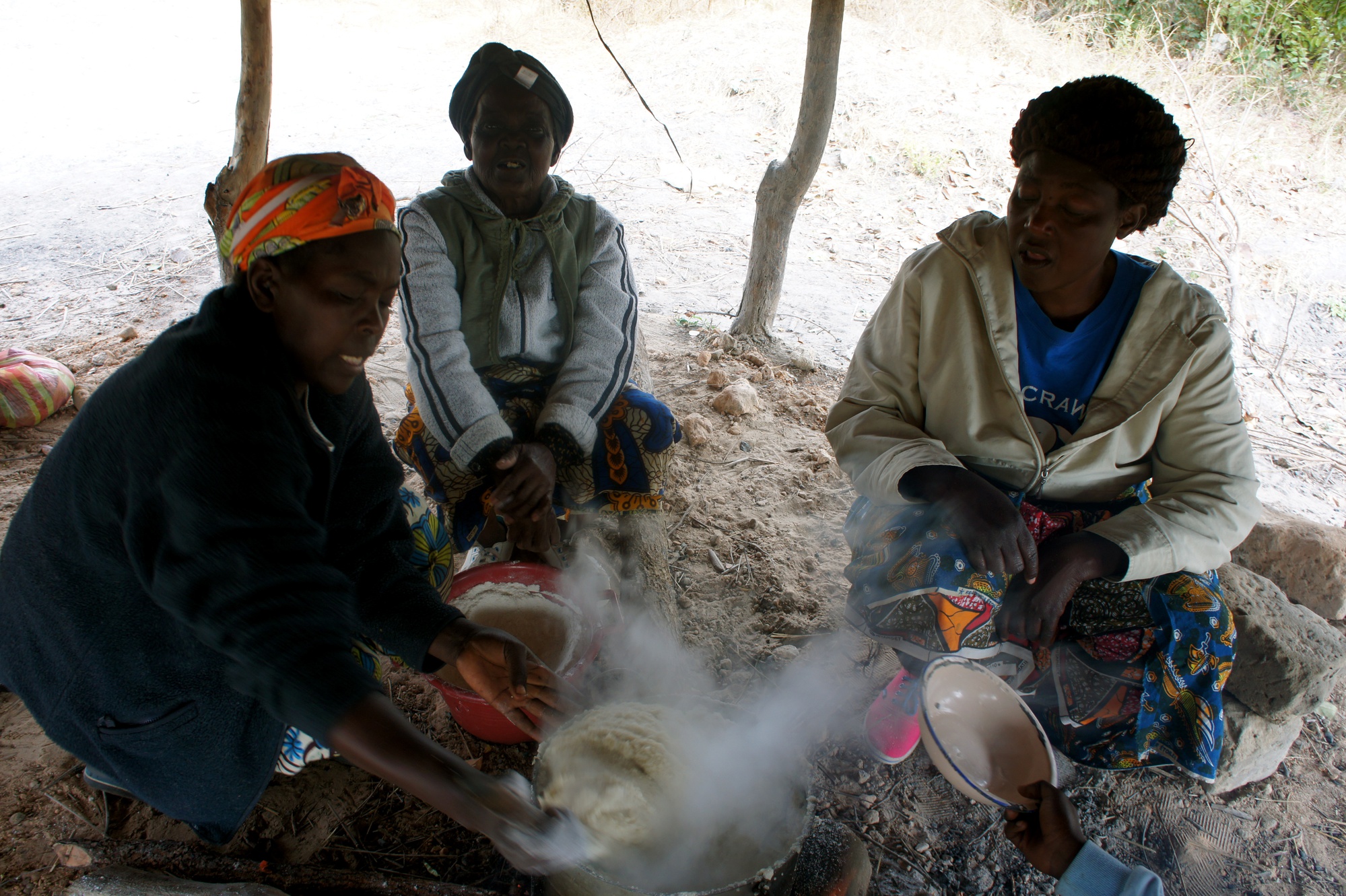
News
When Professors Speak Out, Some Students Stay Quiet. Can Harvard Keep Everyone Talking?

News
Allston Residents, Elected Officials Ask for More Benefits from Harvard’s 10-Year Plan

News
Nobel Laureate Claudia Goldin Warns of Federal Data Misuse at IOP Forum

News
Woman Rescued from Freezing Charles River, Transported to Hospital with Serious Injuries

News
Harvard Researchers Develop New Technology to Map Neural Connections
Tales from the Zambian Bush

ZAMBIA--“In-ko-ko,” I say, pointing to the beautifully feathered fowl that has just walked past our cooking site. The four older Zambian women sitting around the campfire break out in laughter and applause. They are making nshima, a type of corn porridge that has been described to me as “the national dish of Zambia”. Colorful chitenge are wrapped around their waists. Like wearable kaleidoscopes, I have yet to see two of the same patterns.
Rule number one of exploring rural Zambian villages— if you laugh too, then everyone is laughing with you and not at you. In the two hours that I’ve been here, I’ve managed to learn just two words in Bemba, the local language. Not an impressive rate, but people seem so ready to help, explain and, yes, laugh, that it makes the process enjoyable.
Coincidentally, the chicken that I’ve just correctly identified in Bemba, the local language, is the same one that I bought for my hostess in a traditional gesture of gratitude. Just half an hour ago I tried to hold it near a roadside fruit market and succeeded in dropping it and almost getting the poor thing run over. Why did the chicken cross the road? To commit suicide by eighteen-wheeler truck, apparently.
Rule number two— if you are giving someone a farm animal as a gift, try to get it to them alive. The eagle is officially the national bird of Zambia, adorning the upper right-hand corner of their green, red, black, and orange flag. It is the humble chicken however, that truly deserves the title, symbolizing sustenance, prosperity, and dinnertime for millions of Zambians.
“Muli-shani!” Back at the cooking site, one of the younger women greets me and then gestures towards the fire. She hands me a large wooden spoon and proceeds to explain to me the proper technique for stirring nshima. I try and mimic her motions—side-to-side and then upwards— and manage some crude imitation. The smoke from the campfire stings my eyes behind my glasses, and the muscles in my arms begin to ache after two stirs. Stirring corn porridge is a little like mixing sidewalk cement.
Rule number three— if you have a chance to participate in some important life activity, eagerly do so and try to make friends in the process. I manage a few more stirs before handing over the spoon to the woman on my left. She actively sets to work with impressive purpose. It’s an important job she’s doing after all, cooking food to feed two dozen of her closest friends and family. Sitting near this campfire with these four women who have welcomed a complete stranger into their lives, I feel an immense and unexpected sense of privilege.
The greatest privilege of all is the chance to experience a lifestyle different from your own. For me, this is the joy and the necessity of travel— the chance to place yourself into another set of circumstances and to live differently from the way you know. There is no better way to learn about the world around you or about yourself.
Want to keep up with breaking news? Subscribe to our email newsletter.
